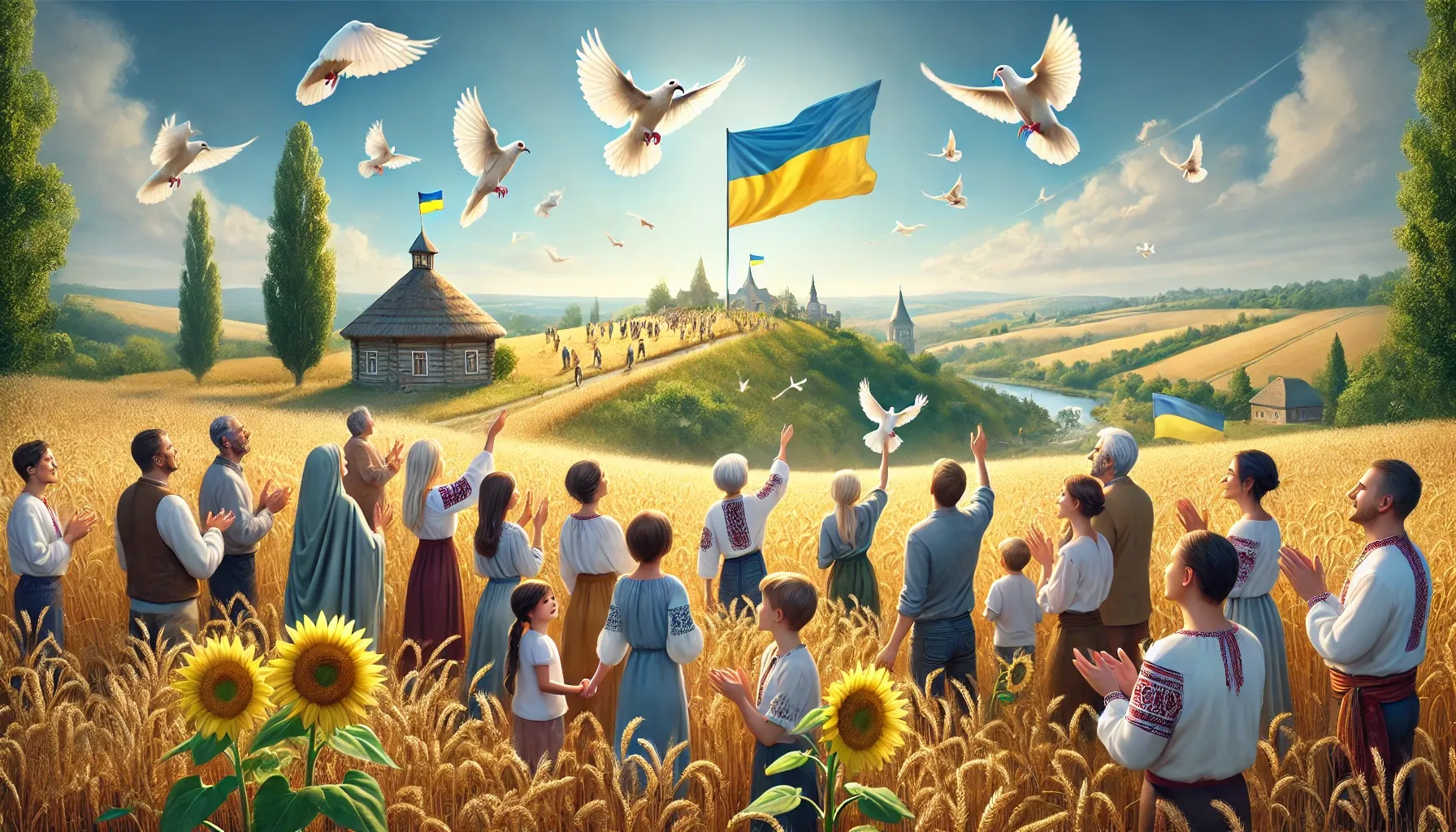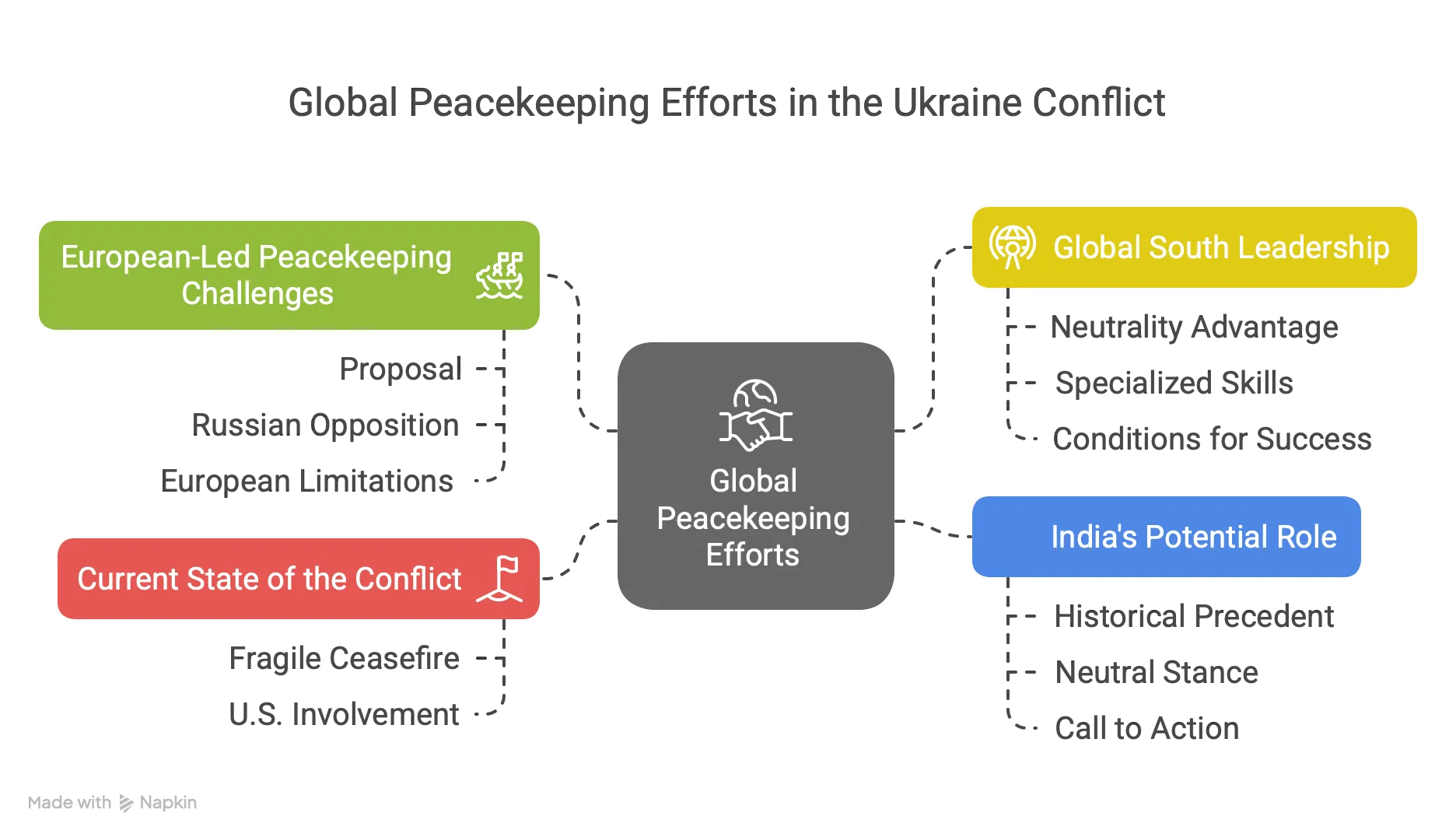Global South’s Role in Ukraine Peace: Opportunities and Challenges
Last Updated
5th April, 2025
Date Published
5th April, 2025
Share This Post With Someone

The ongoing Russia-Ukraine conflict, entering its fourth year as of April 2025, has global implications, prompting discussions on peacekeeping roles beyond traditional Western powers. This article from The Hindu, published on April 4, 2025, by Shashi Tharoor and E.D. Mathew, advocates for the Global South, particularly India, to lead a UN-backed peacekeeping mission. It offers insights into international diplomacy, India’s foreign policy, and the shifting geopolitical landscape, making it a vital topic for aspirants preparing for competitive examinations focusing on global affairs and India’s strategic positioning.

Key Points
Current State of the Conflict:
- Fragile Ceasefire: The war in Ukraine nears a ceasefire, reinforced by maritime and energy truces brokered in Riyadh, signaling exhaustion from prolonged conflict.
- U.S. Involvement: President Donald Trump has pledged to swiftly end the war, with the Black Sea deal marking progress in negotiations.
European-Led Peacekeeping Challenges:
- Proposal: Leaders like France’s Emmanuel Macron and Britain’s Keir Starmer suggest a European-led peacekeeping force, with Starmer committing British troops.
- Russian Opposition: Moscow views this as a NATO expansion ploy, risking escalation rather than peace. Russian Foreign Minister Sergei Lavrov warned it would “fuel the conflict.”
- European Limitations: Public opinion in Europe lacks unity, and logistical challenges hinder a credible mission.
Case for Global South Leadership:
- Neutrality Advantage: The Global South, less entangled in NATO-Russia rivalry, offers a neutral stance for peacekeeping.
- Specialized Skills: Countries like Chile provide expertise (e.g., demining) crucial for Ukraine’s reconstruction, backed by UN mission experience.
- Conditions for Success:
- Robust ceasefire agreement and clear front-line demarcation.
- Financial and logistical support from the West, especially the EU.
- UN Security Council authorization with cooperation from both Russia and Ukraine.
- Exclusion of NATO troops to ensure neutrality and address Russian concerns.
India’s Potential Role:
- Historical Precedent: India led a UN peacekeeping mission in Yugoslavia in 1992 under Boutros Boutros-Ghali, showcasing its capability.
- Neutral Stance: India’s balanced ties with Russia, the West, and Ukraine position it as a credible mediator.
- Call to Action: The article urges India to overcome reticence and lead assertively, leveraging its diplomatic stature.
- Contrast with China: China has been proactive, appointing a special envoy for Ukraine, while India lags in similar initiatives.
Broader Implications:
- UN Relevance: A successful Global South-led mission could reaffirm the UN’s role in global peace and security.
- Global South’s Rise: It offers an opportunity for these nations to claim a stronger voice in international diplomacy.
Key Terms:
- Global South: Developing nations primarily in Asia, Africa, and Latin America, often neutral in superpower conflicts.
- Peacekeeping Mission: UN-authorized deployment to maintain peace and stability in conflict zones.
- NATO: North Atlantic Treaty Organization, a military alliance viewed by Russia as a threat.
- Ceasefire: Temporary halt in hostilities, critical for peacekeeping deployment.
- Demining: Removal of landmines, a specialized skill for post-conflict reconstruction.
- UN Security Council: UN body responsible for authorizing peacekeeping operations.
- Neutrality: Non-alignment with conflicting parties, enhancing mediation credibility.
Link To The Original Article – https://www.thehindu.com/opinion/lead/a-case-for-the-global-south-in-securing-ukraine-peace/article69413739.ece